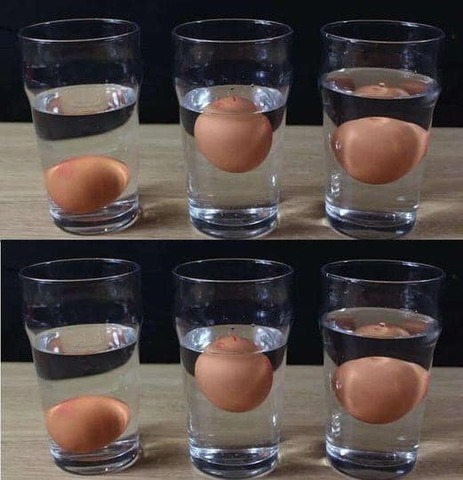3. The Crack Test (Visual Check)
Crack the egg onto a plate
Look at the yolk and white:
✅ Yolk is round and high, white is thick and clumped → Fresh
❌ Yolk is flat, white is watery and spreads out → Older
❌ Pink, green, or cloudy white → Spoiled — discard immediately
📌 Never eat eggs with off colors or foul odor.
4. The Sniff Test (Final Safety Check)
Crack the egg and smell it
Fresh egg → Neutral or slightly eggy smell
❌ Rotten egg → Strong, sulfur-like (rotten egg) smell — toss it!
📌 The smell comes from hydrogen sulfide — a sign of bacterial breakdown.
🔥 Cooking won’t make a rotten egg safe.
5. The Spin Test (For Hard-Boiled Eggs)
Place a hard-boiled egg on a flat surface
Spin it like a top
What happens:
✅ Spins smoothly and fast → Freshly boiled
❌ Wobbles or spins slowly → Older or spoiled
📌 Works because fresh eggs have tighter, more centered yolks.
✅ What to Do With Older (But Still Good) Eggs
Not all older eggs are bad!
Use slightly older eggs for:
🍳 Hard boiling — they peel easier than fresh ones
🧁 Baking — where texture matters less
🍜 Scrambled eggs or omelets — cook thoroughly
✅ Just avoid using questionable eggs in dishes like poached eggs or sunny-side up, where freshness is key.
❌ When to Toss an Egg
Discard eggs if they:
Float in water
Smell bad
Have cracked or slimy shells
Show pink, green, or iridescent discoloration
Are past the “use-by” date by more than 3–5 weeks
🗓️ Eggs can last 3–5 weeks in the fridge from the day they were laid.
🥣 Bonus: How to Store Eggs for Maximum Freshness
Keep eggs in the
original carton
Protects from odors and moisture loss
Store in the
main fridge compartment
Not the door — temperature fluctuates
Keep
pointed end down
Keeps yolk centered and air cell on top
Avoid washing until use
Removes natural protective coating (bloom)
🐔 Farm-fresh eggs? Store at room temp only if unwashed and used within 1–2 weeks.
Final Thoughts
You don’t need a PhD to know if an egg is safe — just a bowl of water, a quiet kitchen, and these 5 simple tests.
By checking freshness before you cook, you’ll:
Avoid kitchen disasters
Reduce food waste
Cook with confidence
So next time you reach for eggs…
take 10 seconds to test.
Because the best omelet starts not with a recipe —
but with a fresh, high-quality egg.
And that’s something worth cracking open.
